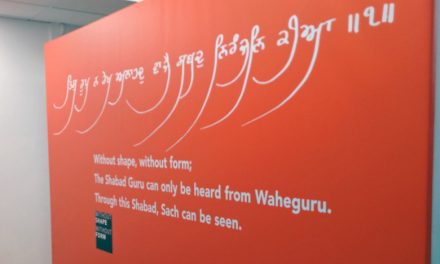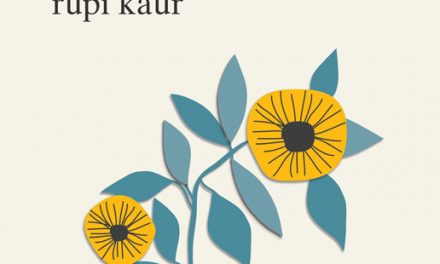This year marks the 30th anniversary of the events of 1984, when the Indian armed forces invaded the Darbar Sahib at Amritsar in Punjab under the direct orders of Prime Minister Indira Gandhi’s Government, followed by a genocide of Sikhs less than 6 months later after she was assassinated in retaliation. Akaal Publishers release the second book from UK-based author Harjinder Singh in commemoration of that event and to critically review the issues including recent related happenings. This work follows on from the author’s first book ‘Playing the Game of Love’ which has developed a cult following in Sikh circles – will it be as popular?
‘Reflections on 1984′ is a book aimed at debunking myths and academically addressing the continuing issues of the Punjab which came to international prominence thirty years ago. The author makes it clear from the start that he will be presenting information objectively before drawing his own conclusions. That desire to look at a topic so close to one’s heart from an independent viewpoint is vital to creating respectable work, but bias is a disparaging accusation levelled at authors far too easily I find in the South Asian community. Previous work on 1984 by eminent writers such as Gurtej Singh or Kulbir Singh Kaura for instance is held up almost as tainted because of the authors’ ‘Sikh’ background, whilst the Jurgensmeyer’s and Tully’s of this World are deemed to be objective purely because they are white (ignoring their obvious political backgrounds). This type of idiocy will continue to be prevalent until a wider culture of critical reading develops in the Diaspora, but for his part Harjinder Singh should be commended for producing a well referenced book with excellent appendices. I was overjoyed to find the Anandpur Sahib Resolution in full, as well as pertinent edicts from the Akal Takht Sahib, which will mean this book remains within reaching distance of my writing desk for many years to come.
True to his title, Harjinder Singh reflects on different aspects of what took place in 1984 in each chapter, choosing to do so over a more linear chronological narrative that would have covered every area of relevance throughout the book. The resulting work makes each chapter digestible in its own right, but does so at the expense of presenting a comprehensive theory on what led to the invasion of the Darbar Sahib. His chapter in conclusion does go some way towards providing that in summation and the reader is left in no doubt as to who and what the author believes is to blame for the atrocities, marking this as an excellent introduction to the issues at the heart of the events of 1984 for beginners and semi-knowledgable readers alike.
Distinct chapters on the peaceful agitation in the years before 1984, Sant Jarnail Singh Bhindranwale, and the civil war that followed in the mid-late 1980s, are particularly helpful for those new to this topic or looking for answers to specific questions. In fact I would argue that it is difficult to find a better resource in English touching upon the life of Sant Jarnail Singh Bhindranwale than that presented here, laid out in response to commonly asked questions about the man and his actions. By including later chapters on ‘The Homeland’ and ‘The Civil War’, Harjinder Singh addresses the fact that the year 1984 itself cannot be looked at in isolation and that the problems which led to the invasion of the Darbar Sahib are just as prevalent today, if not more so – a reality that is lost on far too many who converse about the Punjab’s socio-political state.
‘Reflections on 1984’ is the kind of book that is needed in greater quantity to counteract a one-dimensional portrayal of 1984 and the personalities involved which has hitherto dominated English-language published works. As a reference tool it is not as complete as work by Gunisha Kaur, or as insightfully detailed as work by Sangat Singh, but it is no less compelling and useful to the reader. The author had set out to present an objective account and whilst he does so in my opinion – countering the numerous fallacies that ‘more qualified’ journalists and academics should be frankly ashamed of printing – his passion and sensitivity towards the issues shine through. That shouldn’t be deemed negatively for history is recorded by the victors, and as his conclusion lays forth, the events of 1984 have neither been concluded nor have the victors or the defeated been defined.







